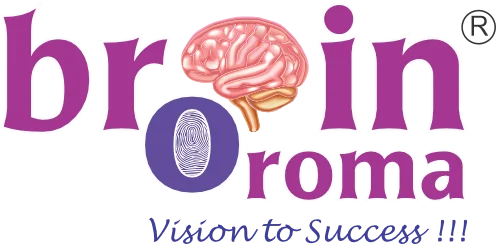Part 5 of Brainoroma’s Mental Health Series
Introduction: The Power of Emotional Resilience
Life is filled with ups and downs, from daily stresses to major life events. How we respond to these challenges often defines our mental and emotional well-being. Emotional resilience is the ability to adapt, recover, and grow stronger through adversity. It’s not about avoiding difficulties but facing them with strength, hope, and flexibility.
At Brainoroma, we recognize that emotional resilience is a skill that can be nurtured and developed through awareness, practice, and support. This blog explores the science behind resilience, key habits to build it, and how our personalized Dermatoglyphics analysis and counseling sessions can empower you to bounce back stronger.
What Is Emotional Resilience?
Emotional resilience is the capacity to withstand stress and trauma while maintaining or quickly regaining mental health equilibrium. Resilient people don’t eliminate stress but manage it effectively, balancing emotional reactions with thoughtful responses.
Characteristics of Emotionally Resilient People
- Self-awareness: Understanding emotions and triggers
- Optimism: Maintaining hope and realistic positive outlook
- Emotional Regulation: Managing feelings without being overwhelmed
- Problem-solving: Approaching challenges with solution-focused mindset
- Social Connection: Seeking and accepting support when needed
- Adaptability: Flexibility to adjust to change and uncertainty
Why Is Emotional Resilience Important?
Resilience acts as a buffer against anxiety, depression, and burnout. It improves mental clarity, decision-making, and physical health by reducing the harmful effects of chronic stress. Building resilience doesn’t mean you won’t feel pain or distress, but you’ll have tools to prevent those feelings from turning into long-term mental health issues.
The Science Behind Emotional Resilience
Brain research shows that resilient individuals exhibit strong connections between the prefrontal cortex, responsible for thinking and self-control, and the amygdala, which processes emotions like fear and anxiety. Strengthening this connection through various practices enhances emotional regulation and stress tolerance.
Practical Strategies to Build Emotional Resilience
1. Cultivate Self-Awareness
Regularly check in with your emotions through journaling, meditation, or mindfulness. Knowing your stress triggers allows you to respond proactively rather than react impulsively.
2. Foster Optimism and Positive Thinking
Practice gratitude by daily listing things you’re thankful for. Reframing negative thoughts into balanced, positive perspectives helps reduce stress reactions.
3. Develop Healthy Coping Skills
Engage in activities that reduce stress, like exercise, creative pursuits, or spending time in nature. Avoid unhealthy coping such as avoidance, substance use, or excessive screen time.
4. Strengthen Social Connections
Maintain meaningful relationships with friends, family, or support groups. Emotional support builds a safety net to rely on during tough times.
5. Set Realistic Goals and Take Action
Break challenges into manageable steps, set achievable goals, and celebrate small victories. Taking action boosts confidence and control.
6. Embrace Flexibility and Adaptability
Accept that change and setbacks are part of life. Flexibility in thinking and plans allows you to adjust without losing hope.
How Brainoroma Supports Your Emotional Resilience Journey
Personalized Dermatoglyphics Analysis
Our Dermatoglyphics analysis reveals your unique brain and personality patterns, identifying natural strengths and vulnerabilities related to emotional resilience. Understanding your innate tendencies enables tailored strategies for growth.
Counseling for Emotional Empowerment
Our caring counseling sessions provide guidance, motivation, and specific techniques to enhance self-awareness, emotional regulation, and problem-solving. Together, we develop a personalized resilience-building plan aligned with your life circumstances.
Brain Exercises and Coaching
Through customized brain exercises and coaching, we strengthen neural pathways that support resilience, focus, and mental flexibility. This holistic approach integrates mind, body, and spirit for lasting transformation.
Building Resilience Across Life Stages
- Children: Teach emotional literacy and healthy expression early; encourage curiosity and problem-solving.
- Teens: Support identity formation, self-esteem, and social skills through guidance and positive peer interaction.
- Adults: Manage work-life balance, cultivate mindfulness, and seek social support in times of stress.
- Seniors: Find new purpose, nurture relationships, and embrace life changes with acceptance and grace.
Real-Life Stories of Resilience
Many clients share stories of overcoming emotional adversity through Brainoroma’s tools. For example, a young professional learned to manage workplace stress by recognizing negative thought patterns and replacing them with empowering beliefs through counseling and brain exercises. An elderly client found renewed hope and peace by learning emotional regulation skills and engaging in social activities that nourish the soul.
Tips for Daily Resilience Practice
- Start your day with mindful breathing or meditation
- Journal emotions and accomplishments each evening
- Practice gratitude with family or friends
- Set small achievable goals and track progress
- Reach out for support without hesitation
- Take regular breaks and spend time outdoors
When to Seek Professional Support
If emotional distress impairs daily functioning, causes persistent sadness or anxiety, or leads to thoughts of self-harm, professional counseling is essential. Early intervention improves outcomes and builds long-term mental strength.
Conclusion: Your Resilience Potential
Emotional resilience is a powerful resource within everyone. Like a muscle, it grows stronger with thoughtful practice and support. Brainoroma is committed to guiding you on this transformative journey to unlock your full emotional potential and meet life’s challenges with courage and hope.
Ready to build your resilience? Contact Brainoroma today to schedule your personalized Dermatoglyphics analysis and counseling session. Together, we’ll create a roadmap for emotional empowerment that lasts a lifetime.
📍 Vadodara, Gujarat, India
📞 +91 96380 80816
📧 support@brainoroma.com
🌐 https://brainoroma.com/brainoroma/
Follow us for daily mental health tips and inspiration:
Facebook: @brainoromaworld
Instagram: @brainoroma
Disclaimer: This blog is for educational purposes and is not a substitute for professional medical advice.
